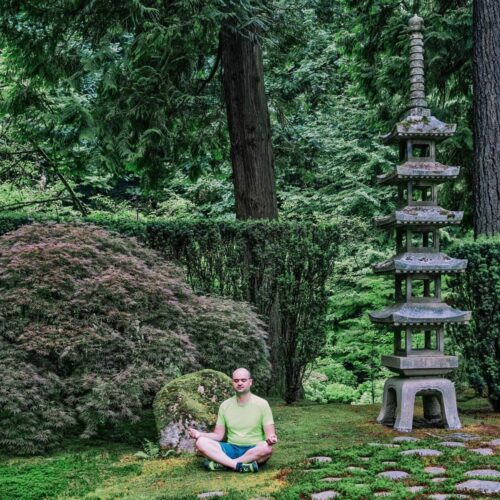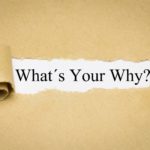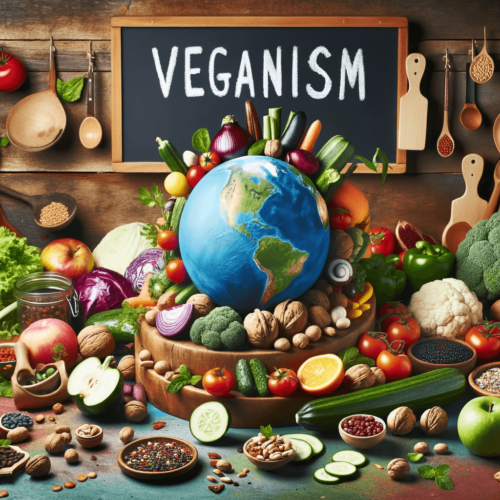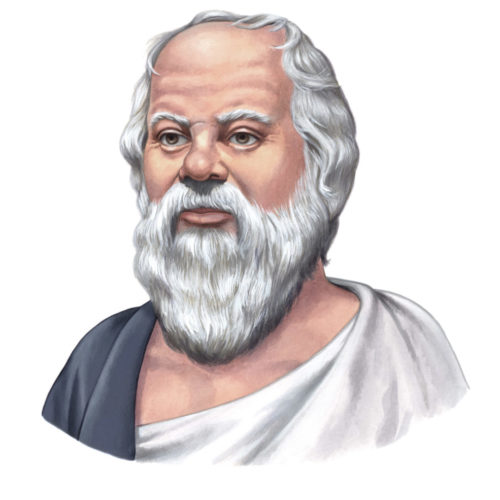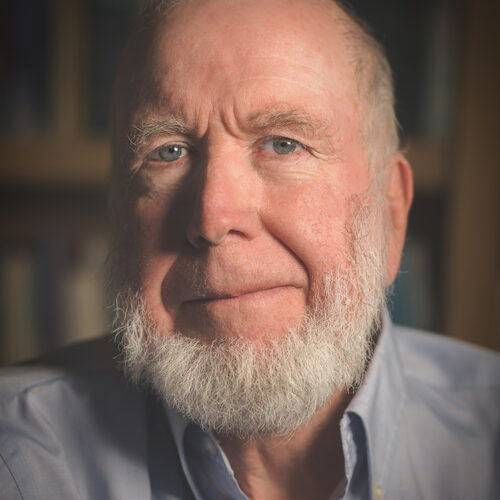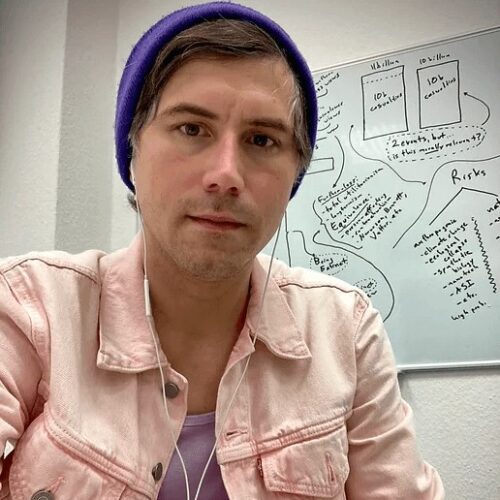Nikola Danaylov at Dark Futures: NeoTechnocracy – The Future is Worse than You Think
Socrates / Podcasts
Posted on: December 15, 2019 / Last Modified: January 7, 2020
Podcast: Play in new window | Download | Embed
Subscribe: RSS
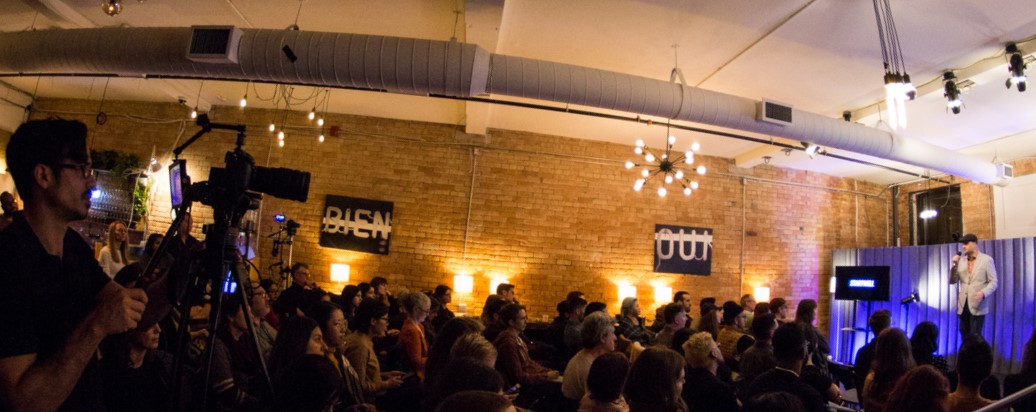 This is the short closing speech I delivered at the 2019 Dark Futures meetup in Toronto. Not my finest speech but, since event organizer and futurist Nikolas Badminton kindly gave me a video of my keynote, I thought it may be good to share it publicly and get your critical feedback.
This is the short closing speech I delivered at the 2019 Dark Futures meetup in Toronto. Not my finest speech but, since event organizer and futurist Nikolas Badminton kindly gave me a video of my keynote, I thought it may be good to share it publicly and get your critical feedback.
Feel free to post your comments below.
Title: NeoTechnocracy: The Future is Worse than You Think
Description: Technology is the new religion, Silicon Valley is the new chosen land and entrepreneurs are the new chosen people. They promise a future that is better than we think – a techno-heaven of abundance and, naturally, immortality. And we are all believers now.
But are we the masters, or are we the tools of our tools? Are we exhibiting religious fetishism for technological objects? Are we creating personality-cults around techno-prophets? Are we falling for new techno-religions – such as dataism? Is power in the hands of those behind, or those in front of the screen?
NeoTechnocracy: The Future is Worse than You Think
(speech content)
In 2016, my wife Julie and I took a road trip through California. Needless to say, Los Angeles and San Francisco were among our points of interest. Now, if you were going by car as we were, chances are that the very first thing you will see upon entering LA is those makeshift camps of tens of thousands of homeless Americans.
Well, 2 years before our trip, Peter Diamandis published his best-seller “Abundance” and told us that the future is better than we think. In it, Diamandis claimed that we can solve all of humanity’s grand challenges with enough capital, technology, and “the right people” – whom Peter titled the Technophilantropists. And, yet, there we were, in his hometown, in the one place in the world with the highest concentration of all of the above, and we witnessed shocking poverty, severe drought, environmental destruction and crumbling infrastructure.
I got so shocked that I decided to do some research. Only to get even more shocked in discovering that if you calculate the cost of living the “Golden State” of California, is, in fact, America’s poorest, because perhaps 1 out of 4 live at or below the poverty line. So while California has the 5th largest economy in the world and the largest in the US, according to McKinsey’s, it ranks 46th among the states for opportunity, 43rd for fiscal stability, and dead last for quality of living.
This paradoxical situation raises many important questions. For example: How is it that poorer countries such as Canada, that have less access to advanced technology and much fewer billionaires, somehow end up having a happier, healthier and longer-living population, free health care, lower crime rates and lower degree of homelessness?
More importantly, is it a mere coincidence that the state with the most billionaires and the most advanced tech is also the poorest?
And, finally, the blasphemous question: What if the future is worse than we think? How would we know it?
Well, we would know it by looking at the present.
We already saw that in California, abundance is a myth. And I have spoken in the past about how tech companies create scarcity to sell abundance while charging an arm and a leg. And how they pretend to be solving humanity’s grand challenges. Take Facebook. Facebook is not solving humanity’s grand challenges. All it does is micro-targeting of ads to sell you things. And so do Google, YouTube, Twitter, Instagram, Amazon, and most others. All in all, if you think of it, despite their noble rhetoric there is very little saving the world and a whole lot of selling going on. Which is why California itself is in the predicament it is in today.
This is the myth of the technophilantropists – a few entrepreneurial nerds who save the world by technological revolution, while making trillions of dollars. But this revolution is not your grandfather’s revolution. Because this revolution is market-friendly. This revolution is one that Venture Capitalists can invest in. This revolution is lead from the top, not from the bottom. And this revolution is for-profit. So its greatest accomplishment may turn out to be translating old-school consumerism into the digital realm.
But, of course, a revolution which merely replaces those on top is not a revolution at all – it’s a coup. Because there is no paradigm change. Thus, Silicon Valley gave us not only fake news but also fake revolution, fake change, fake friends, fake saving the world, fake ethics, fake privacy, fake freedom, and, as we can see in the streets of LA and San Fran – fake abundance.
The reality is that Big Tech is nothing more than a classic extractive industry. So if in the 20th century the biggest companies were mining fossil fuels, today the biggest companies are mining data. And just like mining companies devastated our natural environment, today, Big Tech is devastating our social environment. Just like in the 20 century terrible crimes were committed in the developing countries where we had colonialism and sometimes genocide. Today we have data colonialism and, in places like Myanmar, genocide powered by Facebook – with 10,000 dead and a million refugees. That’s why Amnesty International says that Facebook and Google are a threat to human rights. And, I say that the technophilantropists are simply digital robber barons.
It used to be that biology was destiny. Today it may turn out that data is destiny. And, if it is indeed true that data is power, then absolute data about everything that we do may turn out to be the absolute power. Because as Big Tech collects the data, as they classify, trade and sell it, what they are selling is not mere data. What they are selling is us. They are selling our identity. They are selling our values, they are selling our hopes, they are selling our dreams, and they are selling our fears. They are selling our past. And they are selling our future. Ultimately, they are selling our power of choice and self-determination. With the hidden goal of making our stories work for them. Because they believe that they know what is best for us.
Elon Musk once said that whatever disseminates power enhances democracy, and whatever concentrates power undermines it. I say that this unparalleled concentration of power is pushing us towards neotechnocracy. Neotechnocracy where those who make the tech tell us what to see and not see, what books to read, what movies to watch, what to buy, who to have as our friends, where to go to school, where to live, where to work, whom to marry, who to believe, who to vote for, when to feel happy or sad. Because they are creating the greatest brain-washing propaganda machine the world has ever seen. And we are becoming a panopticon society where personal choice, privacy, and freedom are so threatened that even our thoughts are not likely to remain safe or private forever.
The neotechnocrats believe that all problems, including those created by technology, can and will be solved by more and better technology. And that they are the smartest and best people to solve them, while naturally making trillions of dollars.
That is the story of Silicon Valley. A story of idealism turned narcissism turned sociopathy. A story where, like Facebook, Big Tech started as magic, then it went manic, and now it is going monstrous. They say they want to save the world. I say they may end up destroying it. Because when ignorance, arrogance, and power converge you have a recipe not only for self-deception but also for self-destruction.
The stories I shared with you today are not about the future. They are about how things are – in the present. And an invitation to imagine how they may be different. That is why in South America, the Indigenous Indians speaking Inara dialect perceive the future as being behind them. And their word for future means behind time. Because we can see the past right in front of us, but we can’t see the future. And they perceive the future as time coming from behind us and rushing into view in front of us, as the future becomes the present.
So telling you that the future is better than you think is just as ridiculous a claim as telling you that the future is worse than you think. Because the future is wide open for it is not a place we arrive at. It is not like Disney Land – a trademark property owned by a corporation. And, as long as the idea that the future is something we arrive at, it would be owned by those who sell us that story.
Instead, the future is something that we all create. The future is a public good. It is a story that we all tell collectively. And it is neither worse nor better than we think. It simply is. Or, rather, will be. And, while doing that it may be good to remember Frank Herbert’s 1965 story about the people who turned their thinking over to machines in the hope that this would set them free only to find themselves enslaved by other people with machines.
Many conferences talk about the fantastic possibilities created by new tech. Dark futures is different. But please don’t be afraid!
Because fear is the mind killer. And because dark times are not necessarily hopeless times.
Please make your mind adjust to the darkness even though it may want to run away.
Because the more hardships we face, the easier it will be to navigate the darkness, and the easier it would be to create a brighter future.
Thank you!

